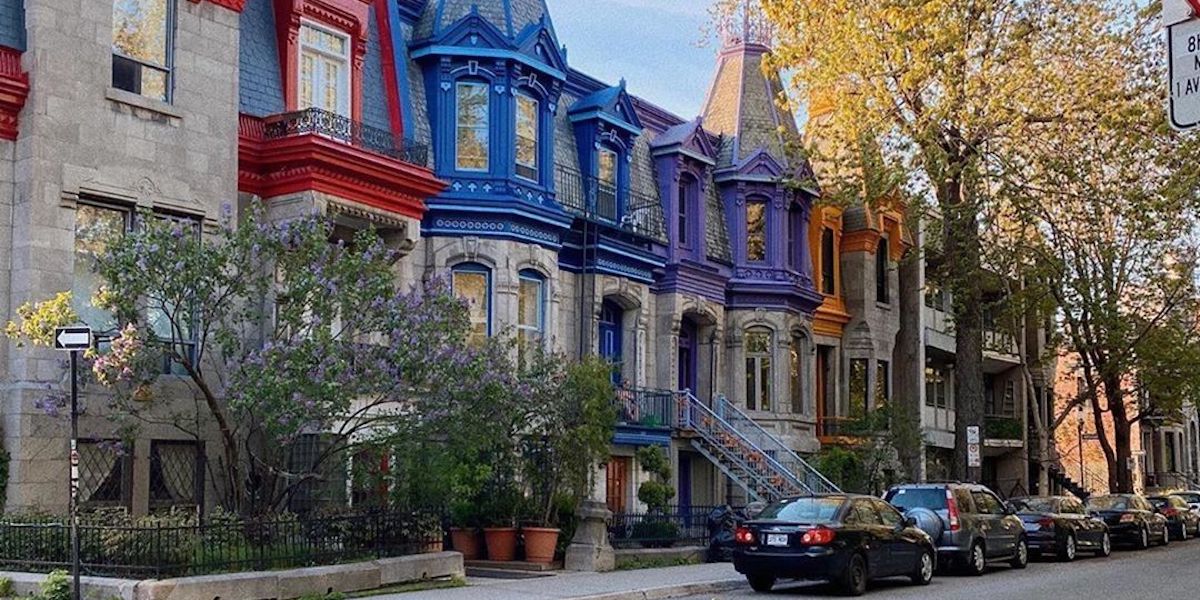
Montreal is immersed in an unstoppable process of transformation in which it is trying to combine the values of a splendid past with the opportunities of a new era, linked to technology, the cultural industry and tourism. A recent study conducted by the Institut du Québec in collaboration with the Conference Board of Canada and HEC Montréal concluded that the city is not yet developing its full potential, but that it has a card up its sleeve: quality of life. In fact, for many years, Montreal has been well positioned in all the world rankings that analyze the quality of life of the world’s largest cities.
According to this study, in which the city’s performance was compared over a three-year period with that of other major North American cities, Montreal has several weaknesses in terms of the economy, but it has affordable housing, a low crime rate and a diversified public transportation system. These are variables that business people, investors and university students take into account when choosing a city to settle in. In this sense, Montreal has a great advantage over other surrounding cities.
Every day, companies related to new technologies applied to health, cinema, entertainment, aerospace development or information and communication technologies are born. These are sectors that require a high level of technical training and a great capacity for recycling and modernization, precisely the virtues that best define Montreal in the 21st century. We should also mention the great cultural industry that has developed in the city under the impetus of major events and institutions of international prestige such as the Jazz Festival, the Blue Metropolis Festival or the Cirque du Soleil. But if you are looking for further reasons to invest in real estates in Montreal, you’ve reached the right place. We bring you a comprehensive list that will definitely help you choose this destination for your next investment.
A Strategically Located City
Montreal is one of the best served cities in North America. It is only a 90-minute flight from Boston, New York or Toronto. It is the capital of a large metropolitan area that is home to more than 4 million people and generates one-third of the gross domestic product of the province of Quebec, the largest in Canada.
This privileged location has made Montreal a strategic communication center with three airports – two of them international – and its port, one of the busiest in North America. It is one of Canada’s major shipping gateways, with annual traffic of more than 28 million tons and a network of connections that reaches more than 100 countries.
Montreal also boasts one of the best public transportation systems in North America, according to the American Public Transportation Association. Its subway system, with 68 stations and four lines, is one of the most efficient in Canada.
There are two other very relevant facts: Montreal is part of a market of nearly 1,000 million consumers through the North American Free Trade Agreement and Comprehensive Economic and Trade Agreement, and has access to more than 40 countries with nearly 1.2 billion consumers and a combined GDP of nearly US$41.2 trillion (half of the world’s output of goods and services).
A Competitive Metropolitan Region
Montréal and Québec maintain aggressive fiscal policies to facilitate the establishment of new businesses, particularly in the technology sector. It ranks second among the 20 largest metropolitan regions in North America in terms of competitiveness based on the tax burden on businesses. Cities such as Atlanta, Cleveland, Toronto, Dallas and Phoenix stand out in this list. It is calculated that when all economic sectors are combined, these operating costs are 10% lower than the average for surrounding cities. The metropolitan region known as Greater Montreal offers the lowest tax burden in North America for R&D companies, thanks to a policy of competitive tax rates and generous tax credits offered by the Canadian and Quebec governments.
A Fiscal Policy That Favours Entrepreneurs
Greater Montreal has developed an attractive tax incentive program that offers significant advantages to businesses, such as refundable tax credits in sectors related to e-commerce or multimedia production. Thanks to them, an employer can recover up to 30% of a worker’s annual salary with a ceiling of 20,000 Canadian dollars.
Particularly noteworthy is the assistance to the film industry, which has a great weight in the Montreal economy, and to the aerospace industry, which represents more than 4% of the total investments received annually by the metropolitan region. In the case of the former, up to 38% in combined tax credits for production services, 20% in refundable credits from the Quebec government for eligible production costs of the producer, Montreal has over 1,700 registered startups and technology companies.
There you go! Still not sure you want to invest in Montreal real estate industry? Come back to check the second part of the article. Until then, what country’s real estate industry is worth your next investment? Tell us your thoughts in the comments below.


[…] Even if you have the cash to buy a property, it may be more efficient to finance it in part with a loan- whether it’s your vacation home or just an investment property. After all, interest rates are still near all-time lows, and, in most countries, the rate you pay on a mortgage is significantly lower than the rental return you can expect from a property. […]
[…] living! Finally, a studio apartment might be a great place to live, depending on your desires and requirements! Do not forget to share your comments […]